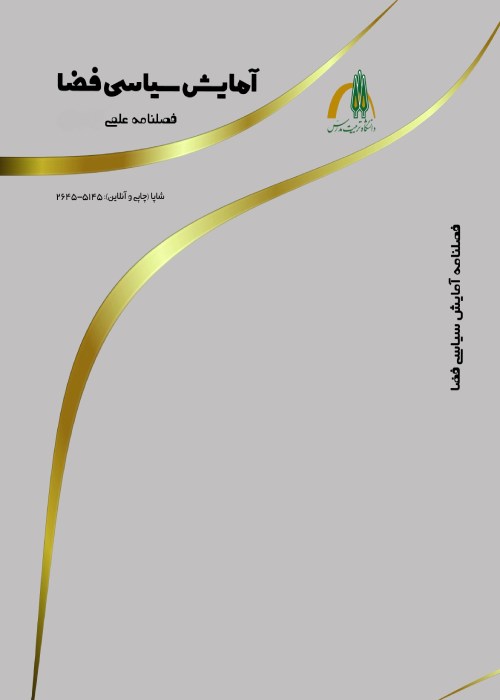Afghanistan's role in changing Helmand situation from hydropolitics level to geopolitics level
Although the world's fresh water resources are limited, they are constantly facing more demands. Population growth, urbanization and the effort to industrialization have caused more requests for fresh water. Meanwhile, more than 2 billion people in the world are facing water stress. Countries, especially in dry regions, have turned their attention to common basins in order to meet their needs. Iran has different common basins. The Hirmand Basin, which is known as the Helmand Sea in Afghanistan, is one of these common basins. Despite the bilateral agreements between Iran and Afghanistan in recent decades, Hirmand has become an issue of tension between the two countries, and its governing characteristics indicate the change of its status from hydro-politics to geopolitics of water; Because, in a continuous historical effort, Afghans have constructed various dams and diversion channels on the Hirmand and have imposed the price of their agricultural development in that basin on Iran.
This article, which was done with an inductive approach and with the strategy of historical-geographical studies, is of an analytical type and was done in a library method. Due to nature of the subject of the research, which is an international issue between Iran and Afghanistan, therefore, the study has been carried out considering the sources, documents, bilateral agreements of the two countries and international sources and conventions.
The negotiations between Iran and Afghanistan on Hirmand can be analyzed in three political phases: the Qajar period, the Pahlavi period, and the Islamic Republic period. The tension over water share began with the separation of Afghanistan from Iran. During the Qajar era, negotiations were held to determine the border, but no action was taken regarding the determination of the Iran’s share from Hirmand water flow. Due to Reza Shah de-escalation policy, in June 1921 a friendship agreement was signed between the two countries. In 1938 an agreement was signed between the two countries that the Hirmand water in the Kamal Khan area would be halved between the two countries. Afghanistan refused to ratify this agreement. The intensification of tension and occurrence of water shortage caused the issue to be seriously pursued during the period of Mohammad Reza Shah. After the mediation of the United States, an agreement was signed in 1973, which was approved in Iran but not approved by Afghan parliament. During the period of the Islamic Republic, Hirmand water flow continuously decreased and it was completely cut off in some cases mainly during the rule of the Taliban.Over several decades, ignoring Iran's water share, Afghans have built many dams and diversion dams on the Hirmand and its tributaries and have caused water flow reduced. Afghanistan's performance in this regard has been in contradiction with all international conventions and regulations.
Preventing Iran's water share flow is enough to turn Hirmand's situation into a geopolitical issue; meanwhile Afghanistan's actions have challenged international standards. Afghanistan's behavior in Hirmand case and the termination of Iran's concession is in contradiction with paragraph 1 of Article 5 of the United Nations Watercourse Convention, which emphasizes the fair and responsible use of water resources. Also, it is in contradiction with paragraph 1 of article 7 of the same convention and paragraph 1 of article 10 of the Berlin Water Treaty and against the document of the United Nations Environment Program which approved in 1978. The former mentioned document emphasizes the countries' behavior based on good neighborhood and respect for the rights and interests of others. According to the principle of historical exploitation, cutting off Hirmand water means ignoring Iran's natural right and right to the Hirmand stream.
- حق عضویت دریافتی صرف حمایت از نشریات عضو و نگهداری، تکمیل و توسعه مگیران میشود.
- پرداخت حق اشتراک و دانلود مقالات اجازه بازنشر آن در سایر رسانههای چاپی و دیجیتال را به کاربر نمیدهد.



